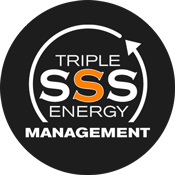Do you receive calls from companies trying to sell you electric and/or natural gas at cheaper rates than what you are currently paying? Do you receive offers in the mail that offer the same thing? Let’s talk about the specifics of this and clarify some of the confusion.
First, let’s be clear about the difference between a Utility Company and a Retail Energy Provider.
What is a Utility Company?
In a deregulated market, the utility is the company that owns and maintains the lines, wires, poles and transformers that deliver electricity and gas to homes and buildings. The utility is responsible for checking meters, restoring power after severe weather and emergencies and fixing gas leaks. As it was before deregulation, it’s the norm for a single utility to serve a large geographical area. In some parts of the United States, utilities compete along with competitive providers and act as the default provider for customers who do not choose their own.
What is a Retail Energy Provider?
Providers, also referred to as competitive suppliers, alternative suppliers or third-party suppliers, are companies that market and sell electricity or gas service directly to customers. In other words, a provider buys electricity or gas from power generators, and you buy it from the provider of your choice. Customers in deregulated markets can typically choose from among several different providers. These companies handle billing and payment processing, and they compete for business in a variety of ways.
For decades, utilities were one-stop shops for generating electricity or gas, transmitting it to customers and processing payments. Customers didn’t have a choice in the matter — your utility depended on where you live. Then, in the 1980s, some states began to allow the deregulation of electricity markets. As of November 2019, 32 states plus Washington D.C. offer deregulated electricity and natural gas. Here is a map of all deregulated states:
How Do Energy Providers Compete?
The driving force behind the move toward electricity deregulation was a desire to break up the geographical monopolies that utilities enjoyed. Because customers couldn’t take their business elsewhere, utilities lacked an incentive to provide superior customer service or competitive rates. In a deregulated market, providers that don’t work hard to earn and keep customers risk losing them to their competitors.
In addition to competing on the basis of customer service, providers offer customers the following options:
- Lower rates. To attract customers who are focused on the bottom line.
- Variety of plans. Providers offer a mix of fixed-rate plans and variable-rate plans. This allows customers to choose a plan that fits their budgetary needs, lifestyle and risk tolerance.
- Customer Service. Excellent customer service is a must to all Energy Providers
Getting signed up with a third-party can be complicated. Triple “S” Energy is an expert management company and has strong relationships with many third-party Energy Providers who can provide competitive rates for power. We can help you decide on prices that best meet your needs along with a free energy audit. Once a contract is signed between the customer and the Energy Provider, Triple “S” Energy will continue to monitor usage, demand, review invoices for accuracy and generate a monthly cost analysis for your review. Triple “S” Energy saves businesses up to 10 to 20% on all energy costs. Visit www.triplesenergy.com for more detail.

